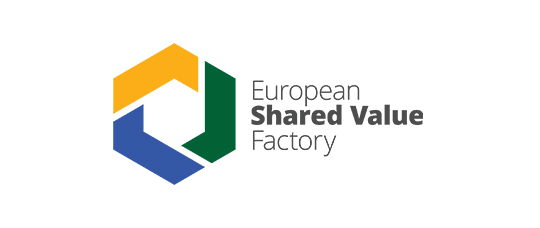
On March 20th and 21st, European Entrepreneurs CEA-PME hosted the first EU-African SME Summit in Brussels. The two-days international summit aimed to build the foundations for cooperation between SMEs on the two continent in the spirit of Shared Value, a new notion redefining the approach to development via sustainable and smart business ideas, thus creating a “shared value” for the companies putting a business idea in practice while bringing benefit to communities from the services or products that are useful to achieve the Sustainable Development Goals.
The event began on wednesday 20th with the Shared Value Business Lab, a workshop part of the broader project European Shared Value Factory led by CEA-PME, and financed by GIZ. Entrepreneurs from the two continents joined in: participants had the chance to learn more about development issues in Ivory Coast, Mozambique and Ethiopia and then proceed, thanks to the Open Space Technology method, to propose and discuss in groups possible ideas to tackle these issues. Once inspired by the creative brainstorming, the participants had occasion to listen to the opportunities provided by European and national financing programs that could help them put their ideas in practice.
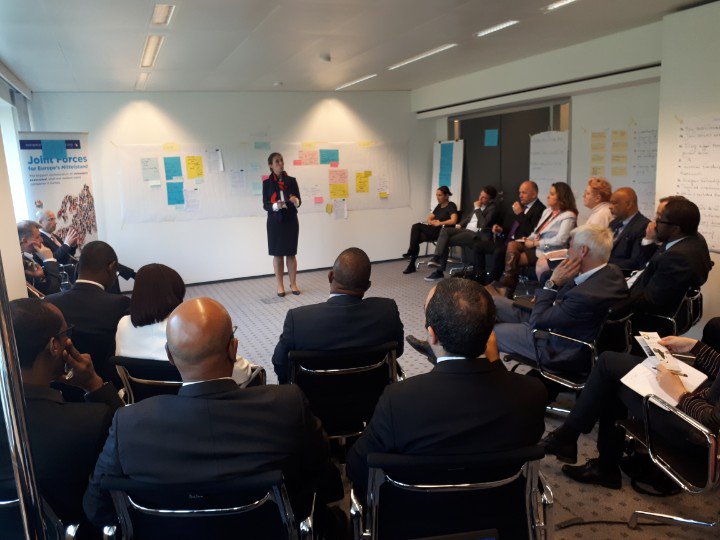
On the afternoon of the second day, the Summit hosted the EU-African SME Conference – an international symposium dedicated to the presentation of key ideas, like the importance of the role of SMEs in development cooperation with Africa, the need to build an SME Alliance between the two continents, and the necessity to create European financial support tools for the investment of small and medium-sized companies in Africa.
The conference took place at the European Committee of the Region in Brussels: more than 200 guests were welcomed by the words of Mr Markku Markkula, First Vice-President of the Committee of the Region, who set the scene by giving a detailed picture of the importance of SME in the economic growth of Europe and Africa alike.
Following the welcome, three keynote speeches took place: the first one was given by Mr Youssouf Moussa Dawaleh, President of the Pan-African Chamber of Commerce and Industry (PACCI), who showed a clear vision for the future: “Close economic cooperation between EU and African SMEs can help create inclusive growth“. He also emphatically stated that PACCI, representing SMEs across the African continent, is ready to work for this cooperation to become a reality.
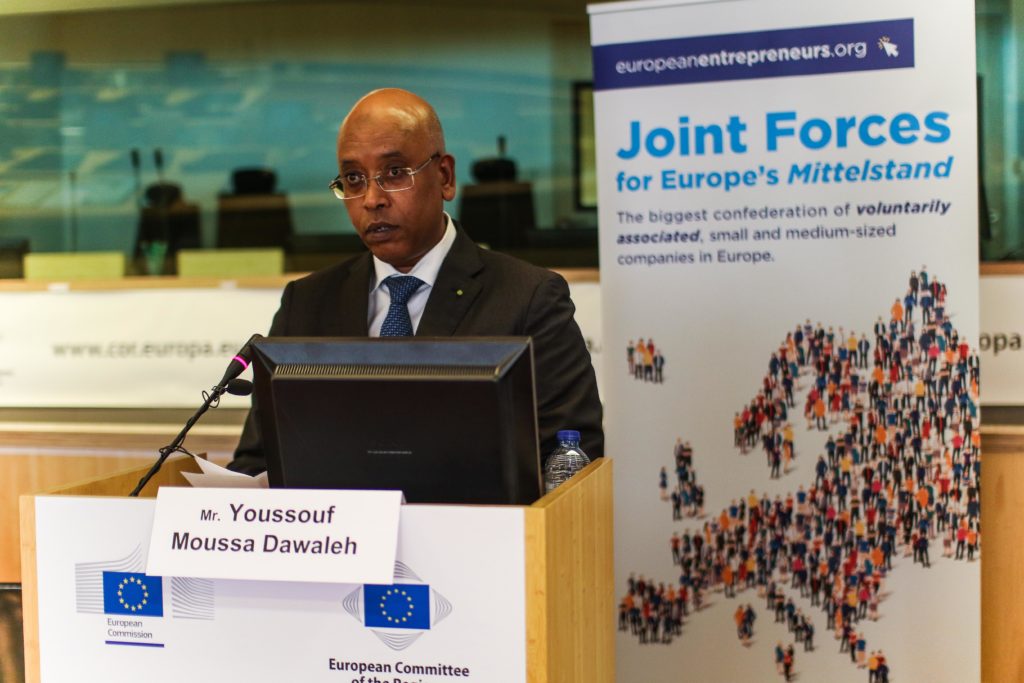
The keynote speech of Mr. Jean-Claude Tchatchouang, Executive Director at the World Bank Group representing 23 African States, followed on. Mr Tchatchouang presented a broader global picture, with particular focus on the many development challenges faced by African countries, using as an example a region he knows well: “There is a need to create more jobs in Sub-Saharan Africa and that’s whereSMEs come in. Supporting their growth will help reduce poverty“.
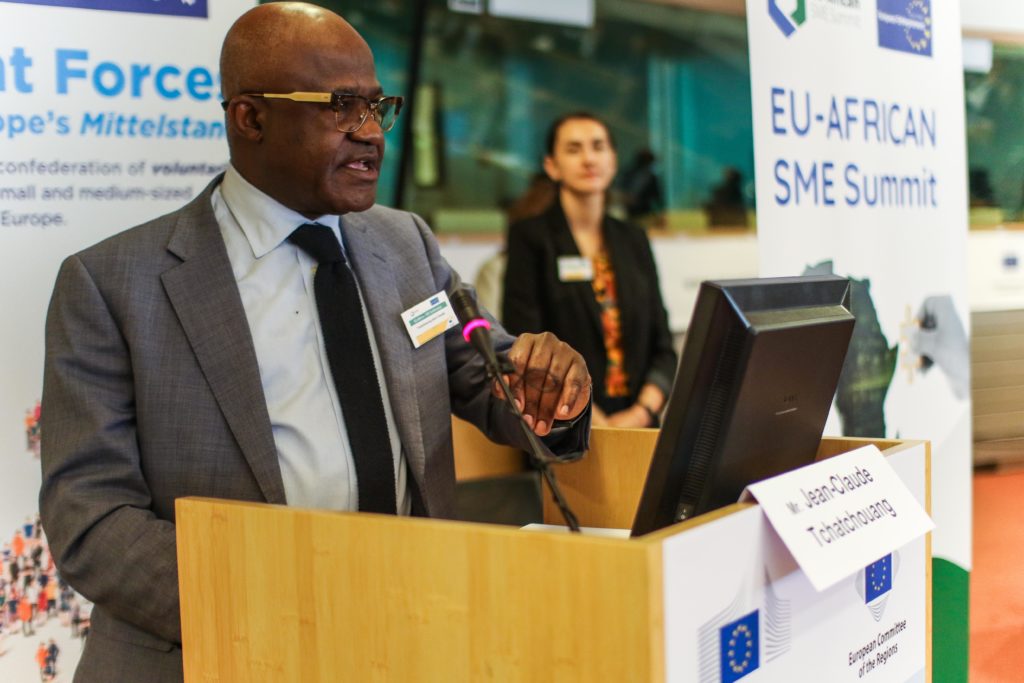
The last keynote speech was provided by the Vice-President of the European Commission in charge of Jobs, Growth, Investment and Competitiveness Mr. Jyrki Katainen. Vice-president Katainen perfectly summarised the great benefits delivered by the cooperation between firms in the two continents, and also underlined the commitment of the EU to this cooperation: “SMEs are the engine of growth and innovation. They create jobs. In the global market, Europe and Africa can gain a lot as economic partners. We are using our tools to support small and medium-sized companies in both continents“.
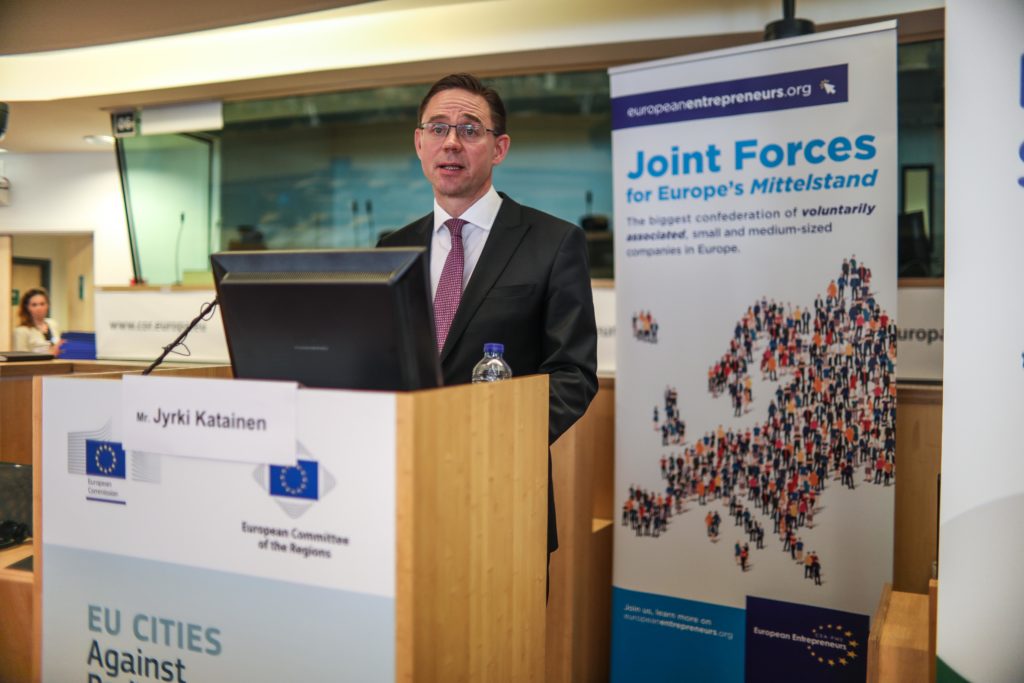
After the keynote speeches, the High-Level Panel: “SMEs as protagonists of development cooperation – another story?” took the stage. The panel was chaired by Ms. Bienvenue Angui, Co-Head of BVMW Foreign Trade Office, Coordinator “Le Mittelstand” and Managing Director German-African SME Alliance by BVMW. The first panellist to speak was Mr. Koen Doens, Deputy Director-General of DG DEVCO at the European Commission. He discussed some of the existing tools for financing cooperation with Africa, like the European Fund for Sustainable Development, which can help mitigate the investment risks, a factor that often hampers SMEs from investing in Africa.
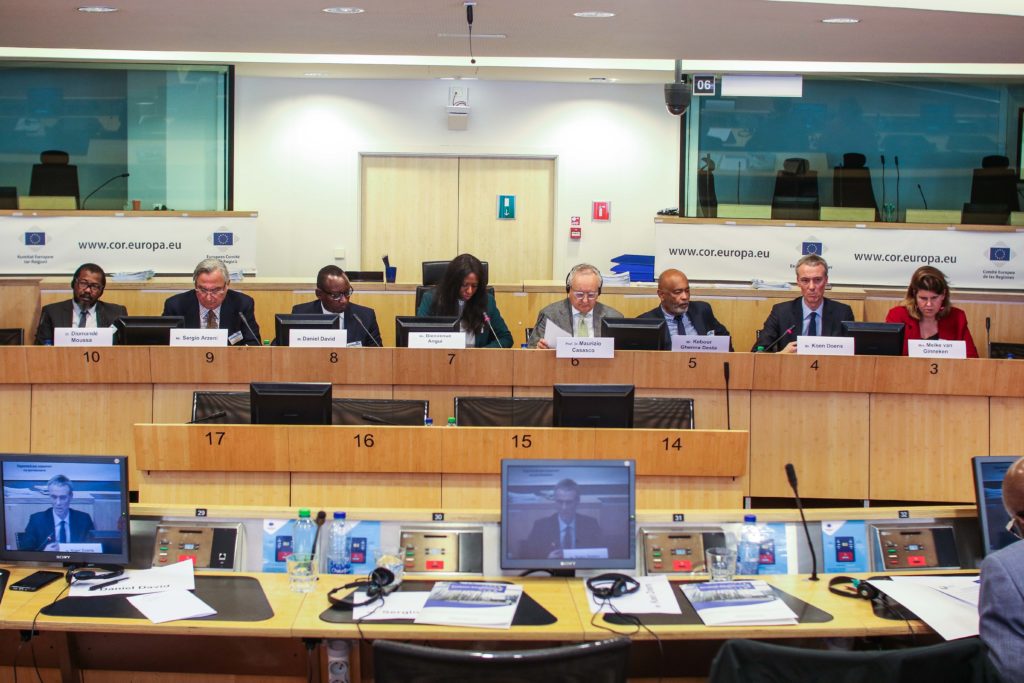
The floor was then given to Mr Daniel David, CEO of FUNDASO, a foundation of the group SOICO in Mozambique. He argued that a deeper involvement of SMEs, European and African, in his country would produce a significant impact as it would create a flow of upstream investments, that would help everybody by creating jobs. Mr Diomandé Moussa, Vice-President of the SME Federation of Ivory Coast FIPME and the following panellist, was equally committed to the idea of an SME Alliance between Africa and Europe. He remarked that the Summit was already a great achievement, as it already set the stage and helped build the connections and networking needed to follow on.
It was then the turn of Prof Sergio Arzeni, president of INSME, thye International Network of SMEs, to take the floor. He looked at the existing level playing field of investment in Africa, and immediately clarified that there is a need for some adjustments: “There is a gigantic financial inclusion gap. We could get 1% growth every year more in Africa, but SMEs need to be more involved“. He was followed by the President of CONFAPI and Vice-President of CEA-PME Mr Maurizio Casasco who was equally committed to emphasize that connections between European and African SMEs entail unique opportunities, not just economically but even for geopolitical relations between the two continents.
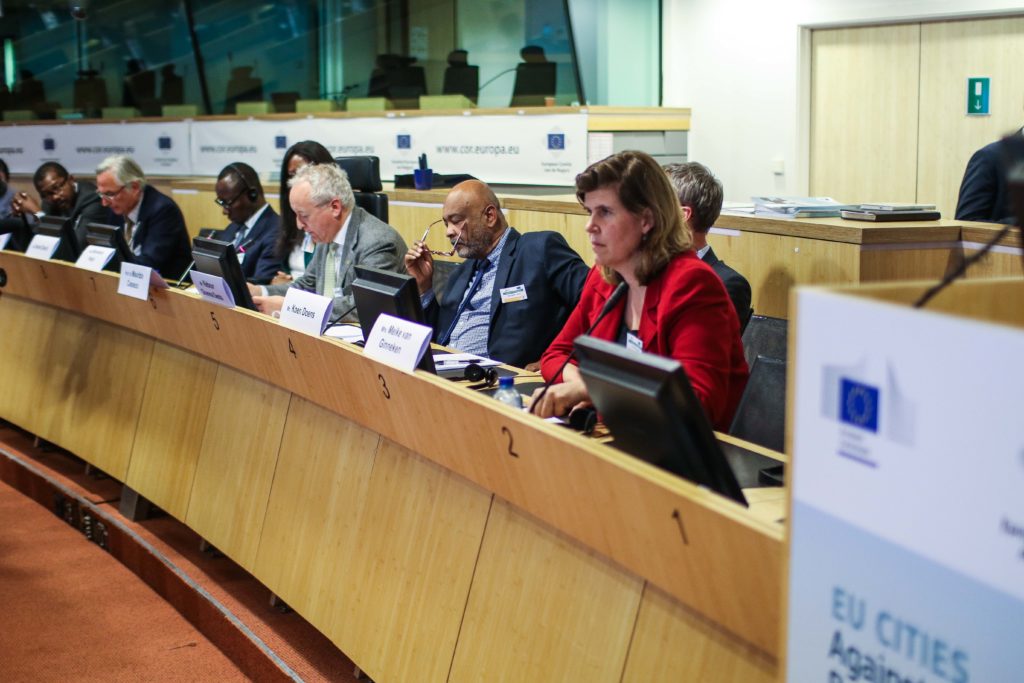
The rationale of opportunities was also the leitmotiv of the next panellist, Mrs. Meike van Ginneken, CEO of SNV Netherlands Development. She reminded the audience that building on the international cooperation between SMEs in Africa and on their thirst for opportunities can truly help tackle development issues – exactly in the spirit of Shared Value. The last, but surely not least, panellist was Mr. Kebour Ghenna Desta, Executive Director of PACCI, who agreed with the previous speakers but also added that cooperation creates unique bonds between companies: “In a collaboration, if we help European SMEs, we also help African ones. Together we can overcome the problems in the system“.
After a coffee break, the President of European Entrepreneurs CEA-PME and of Der Mittelstand-BVMW (D), Mr Mario Ohoven took the floor and fascinated the audience with a passionate speech about the unique potential in the cooperation between African and European SMEs in areas like digitalisation, infrastructure and mobility. He emphasised how we must make step forwards in this direction and how the support of the European Union should not be limited to words and existing solutions but should also look at new opportunities with a renewed understanding of their value, and provide adequate help, for example in the form of a new financing program for European SMEs who plan to invest in Africa.
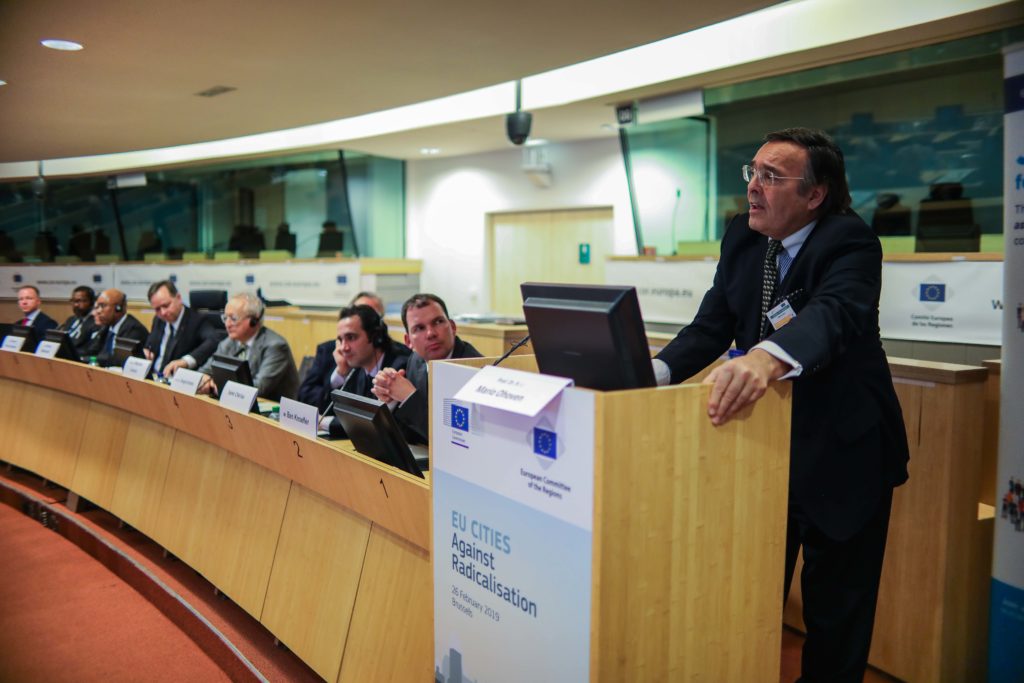
The speech of the president of CEA-PME was the prelude to an historic moment: the Signature of the Memorandum of Understanding for the European-African SME Alliance. The document, laying the foundation for the alliance between SMEs in Africa and in Europe, was signed by the representatives of European Entrepreneurs CEA-PME, PACCI, FIPME, BVMW, CONFAPI, AFDEE (F), ESBA, EVBB and YES for Europe. Mr. Patrick Meinhardt, Second Secretary General of the German-African Mittelstand Alliance, Board Member of European Entrepreneurs CEA-PME and Director for Public Policy, European Affairs and Foreign Trade of BVMW e.V, acted as master of ceremonies while Mr. Patrick Gibbels, Secretary General of the European Small Business Alliance, and Mr. Ben Knoefler, President of YES for Europe, both took the floor to remark the importance of small and young entrepreneurs and of sharing best practises in the framework of the alliance.
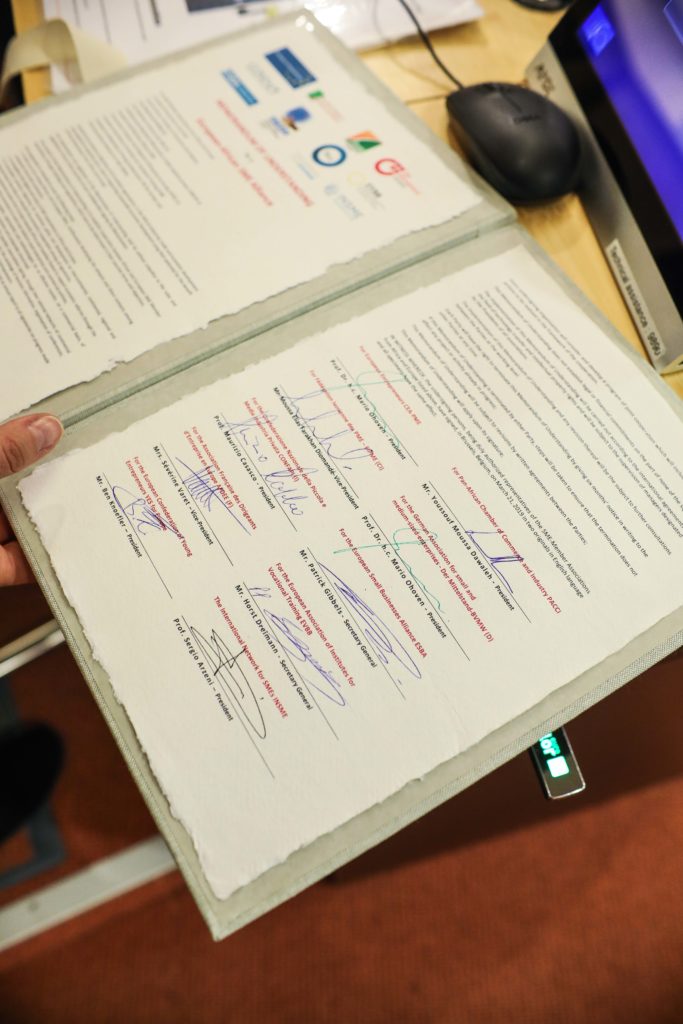
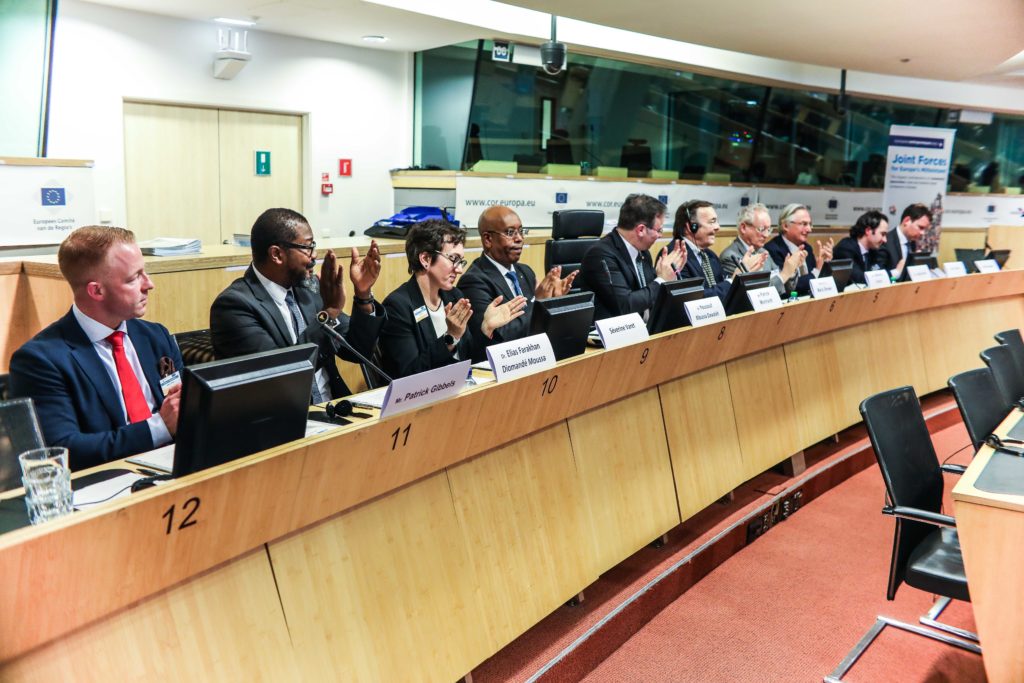
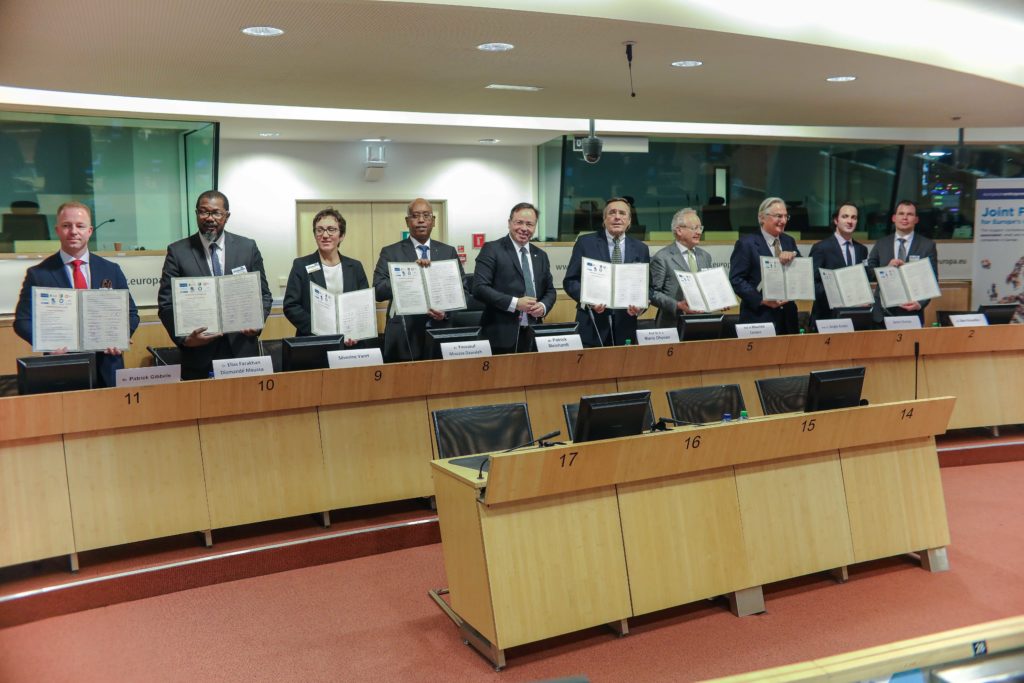
The second panel than took its place on the stage – the Stakeholder Panel: “An ‘SME-Instrument for development’ for shared value business”. The panel was chaired by Prof. Dr. Horst Fischer of CEA-PME and lecturer at the University of Leiden and at the Columbia University.
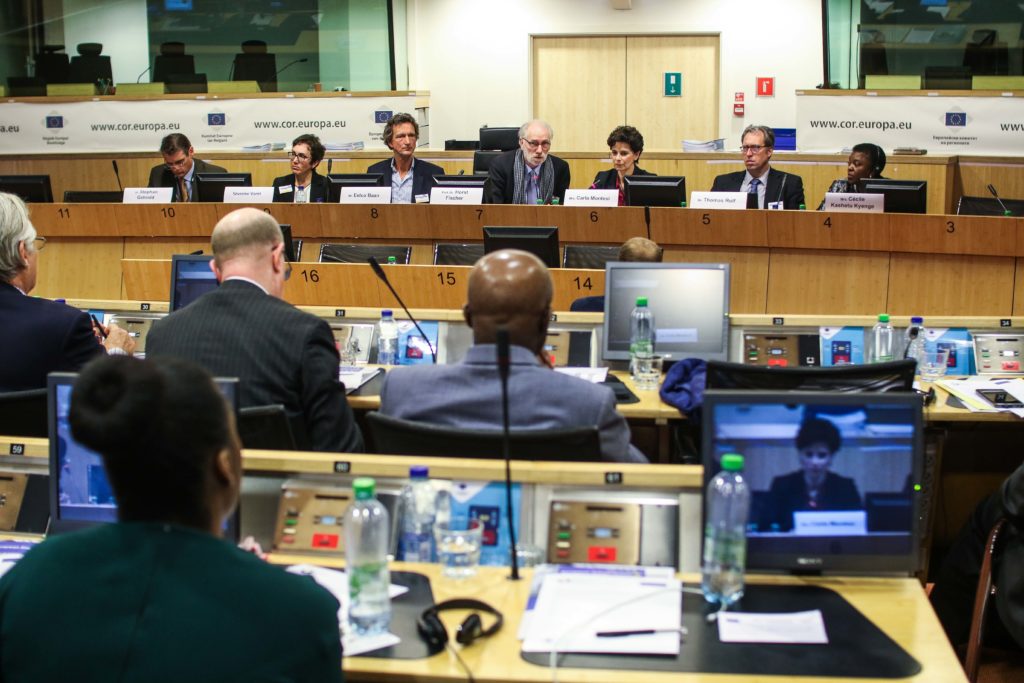
The first speaker of the panel was Mrs. Carla Montesi, Director of Directorate C – Planet and Prosperity at DG DEVCO. Looking at the technical side of how to support European SMEs in cooperating with their African counterparts, she focused on the holistic approach of the European Commission to development, including business environments and access to finance. She was followed by the Italian MEP Cécile Kashetu Kyenge, Vice-Chair Delegation to the ACP-EU Joint Parliamentary Assembly, Member of DEV & LIBE Committees and the EP-Delegation for the relations with the Pan-African Parliament. Mrs Kyenge provided a political angle, stating that it is a very important moment to focus on cooperation and development with Africa, including for SMEs.
The following panellist, Mr. Eelco Baan, Global Value Chain Coordinator at SNV Netherlands Development Organisation, took an economic approach and explained how both the demand and supply sides need support to create Shared Value, particularly when it comes to SMEs. Mrs Séverine Varet,Vice-President of the French SME association AFDEE and member of CEA-PME, spoke of the issues connected to trade, based on her long experience in the field as an export expert: “In 15 years I worked with Africa I have seen the situation evolve. But there are still practical problems and SMEs can help to overcome them“.
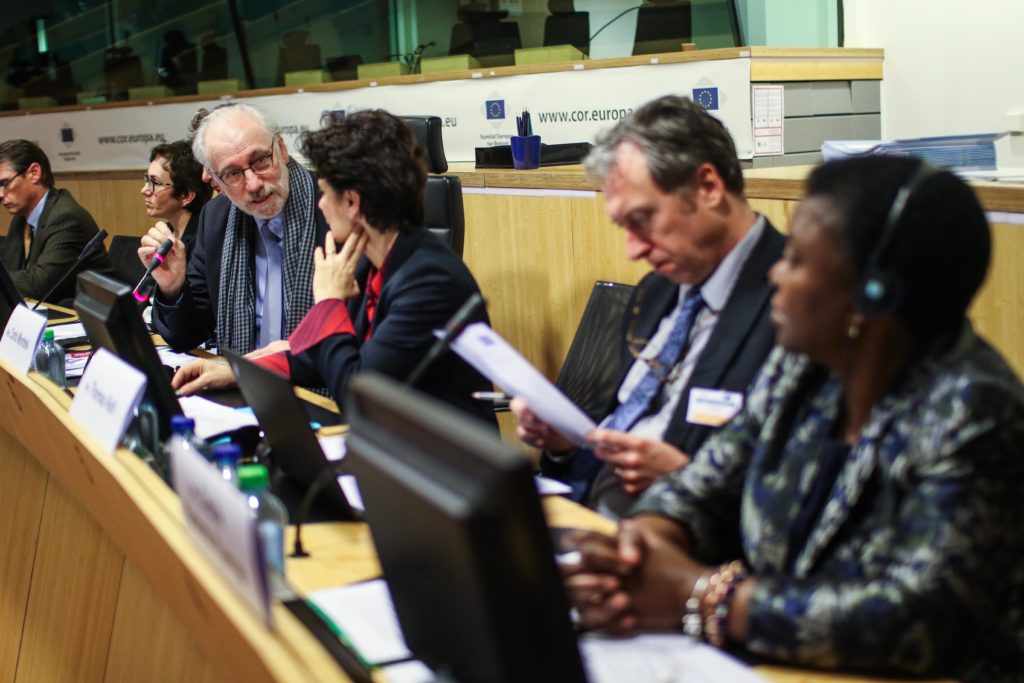
Mr Thomas Rolf, expert in Private Sector Cooperation – Economic and Social Development at the German Development Agency GIZ, explained that is important to ask directly SMEs what they need to be supported and what is missing, as that is the only way to create Shared Value when doing business in Africa. His words were given further political weight by German MEP Dr Stefan Gehrold, Member of DEV, ECON & TRAN Committees, the EP-Delegation to the ACP-EU Joint Parliamentary Assembly, and the Delegation for relations with the Pan-African Parliament: “There is a clear connection between wealth and the realisation of the Sustainable Development Goals of the UN, and SMEs need to be supported if we want help them to reach these goals“.
The conference was concluded with the closing remarks of Mr. Stefan Moritz, Managing Director of European Entrepreneurs CEA-PME who summarised the key points of the event and made suggestions for the way forward to truly solidify a EU-African SME Alliance: “We need to build a network of trust and a European Financial Instrument that can help SMEs working through Shared Value so to that they can truly deliver solutions to local development issues“.
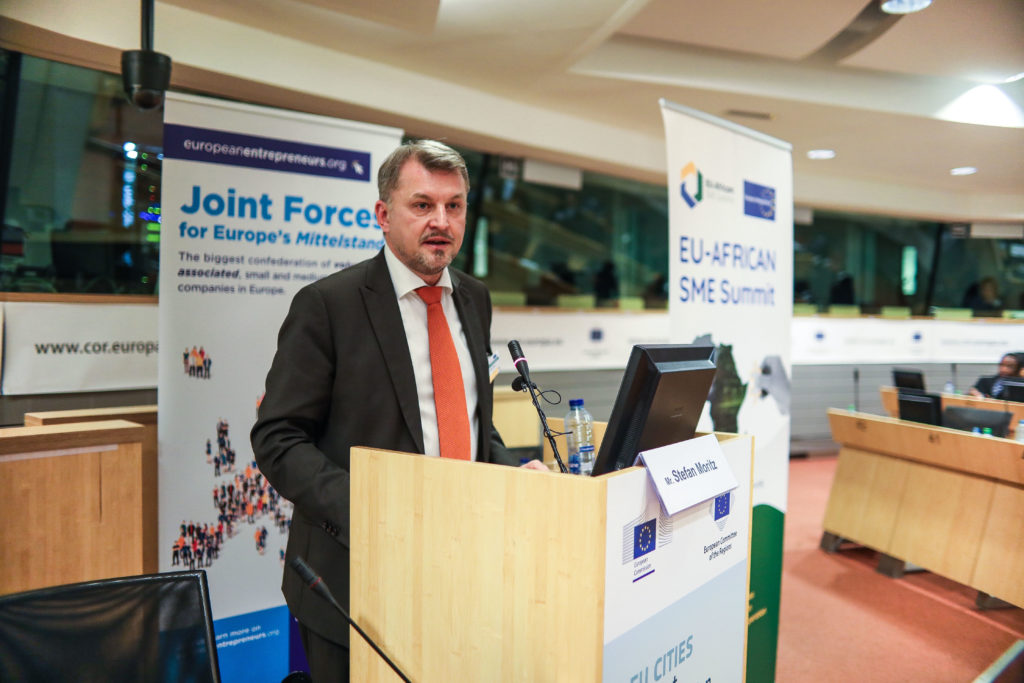
The audience had then the occasion to enjoy a final networking cocktail, kindly sponsored by Turkish Airlines, which is one very important carrier for Africa with 52 destinations on a continent projected to the future.
Selected Photo Gallery:
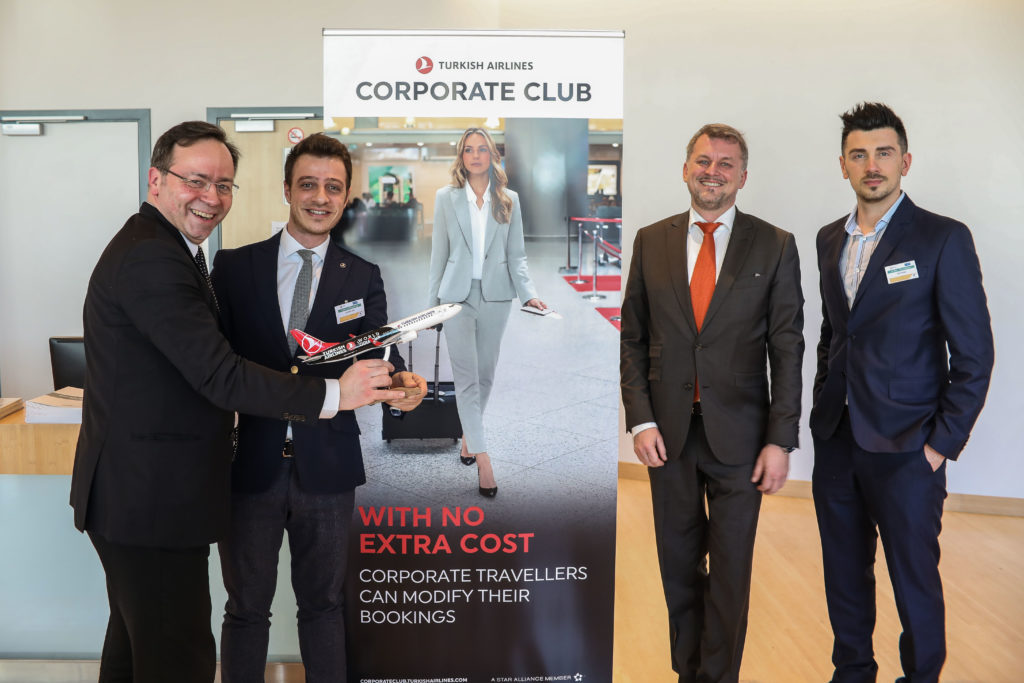
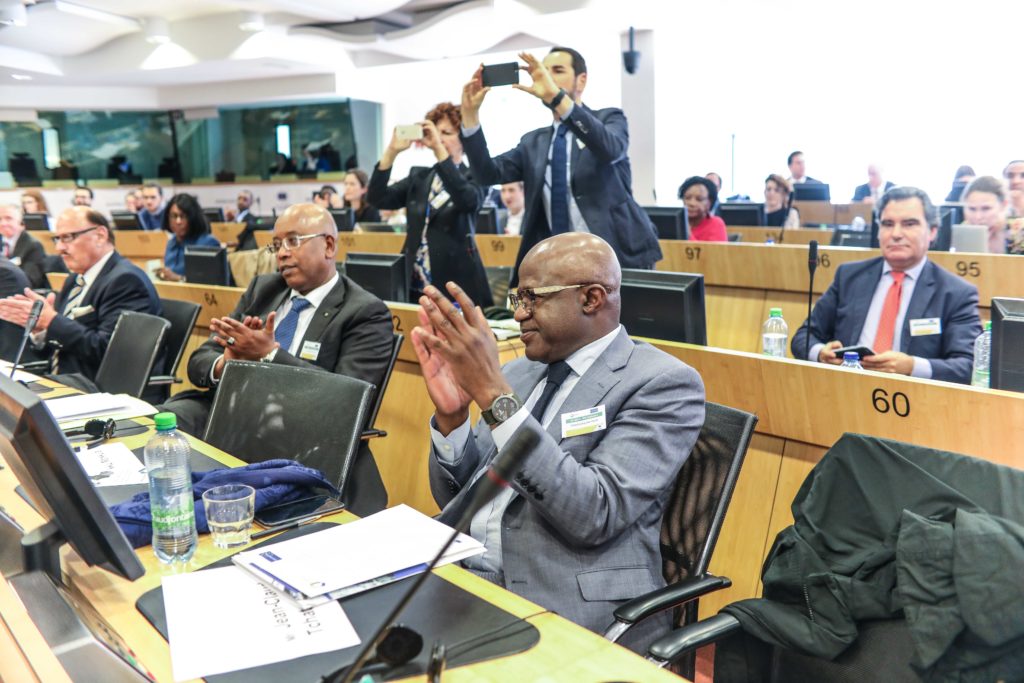
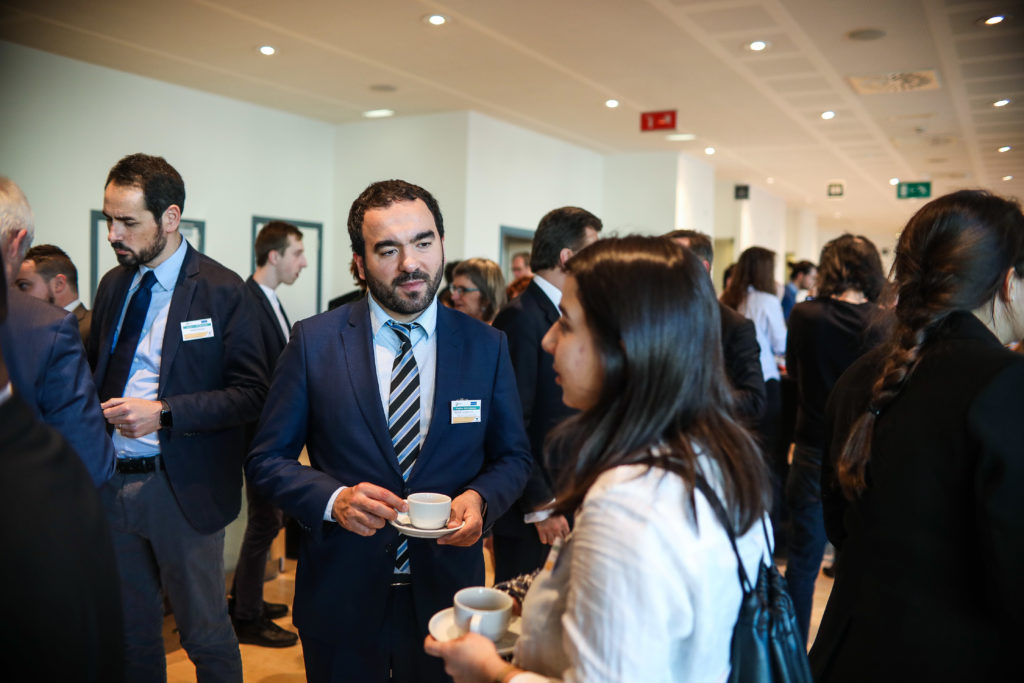
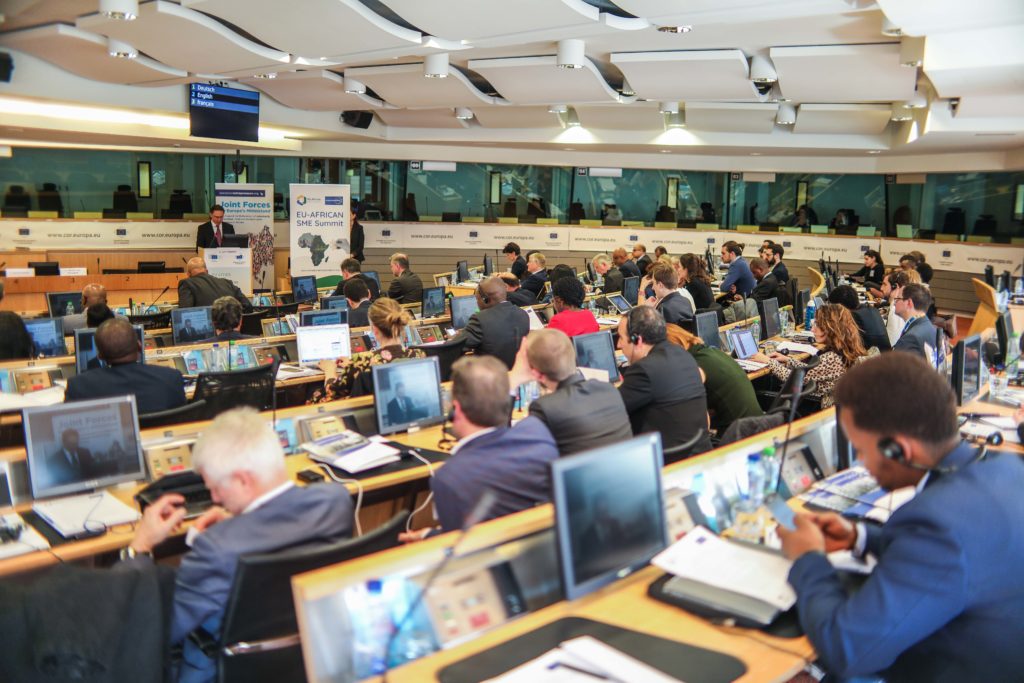
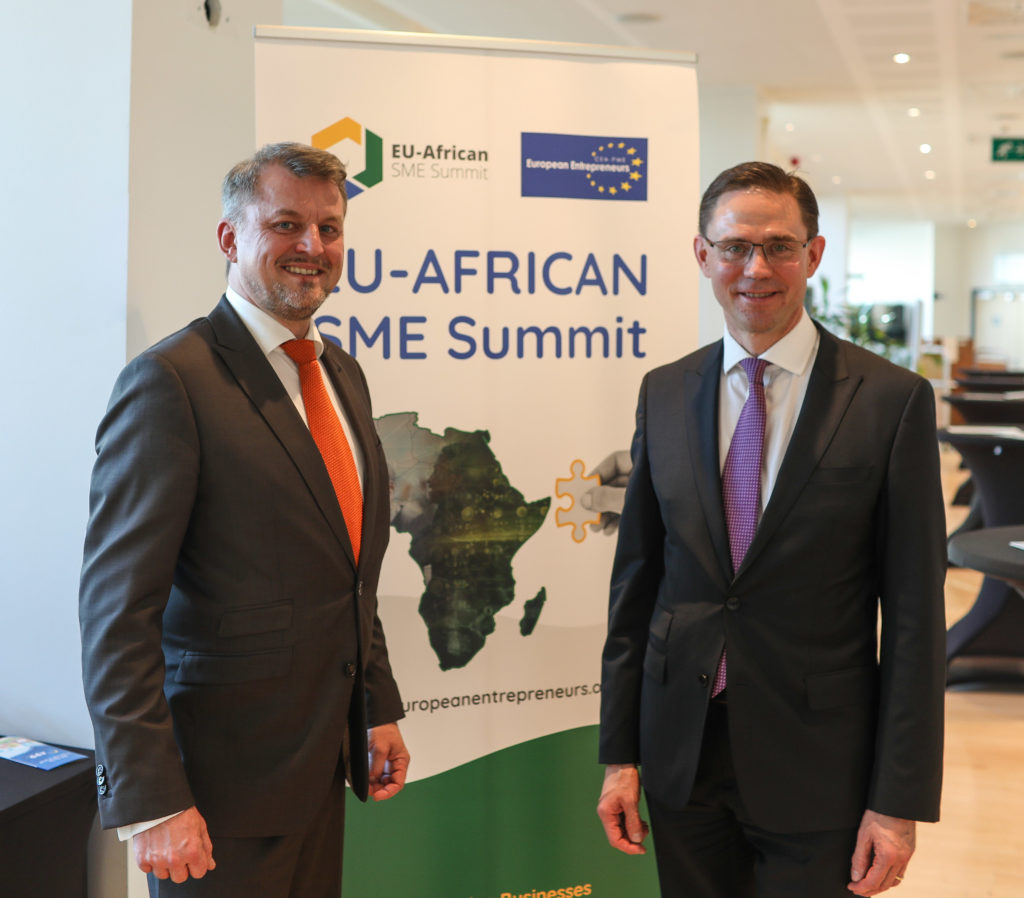
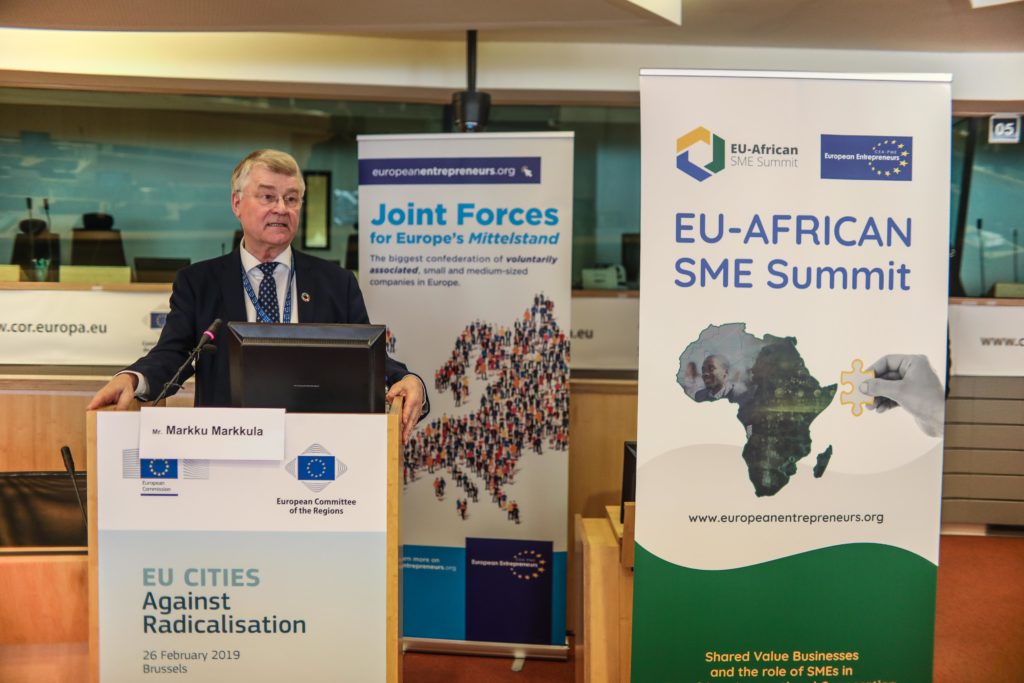
For the full photo gallery, please visit the event’s website here.